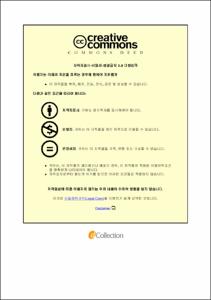호텔고객의 불량행동이 직무스트레스, 감정노동 및 이직의도에 미치는 영향
- Alternative Title
- The Effects of Jay-customer Behavior on Job Stress, Emotional Labor and Turnover Intention:the Moderating Role of Hotel Type
- Abstract
- This research investigates the relationships between jay-customer behavior, job stress, emotional labor and turnover intention in the hotel industry. The research objects are as follows. First, this paper reviews the past literature on jay-customer behavior, job stress, emotional labor and turnover intention. Second, this paper develops key constructs based on the literature review and empirically examines the effect of jay-customer behavior on job stress, emotional labor and turnover intention. Third, this paper further analyzes on the effects of job stress and emotional labor on turnover intention. Fourth, this paper looks at the casual relationship between emotional labor and job stress. Fifth, this paper is also interested in testing the casual relationship between emotional labor and turnover intention. Last, but not least, the comparative study is undertaken between two different types of hotel, namely deluxe hotels and business hotels. The research was conducted between June 20th and August 20th in 2018 targeting the hotel employees at the deluxe hotels(Paradise Hotel, Novotel and Westin Chosun Hotel) and the business hotels(Haeundae Centum Hotel, Centum Premiere Hotel and Ibis Hotel). In total, 379 self-administered questionnaires were completed and analyzed for the analysis using SPSS 23.0 and AMOS 23.0 Exploratory factor analysis, confirmatory factor analysis and correlation analysis were utilized to assess the convergent validity and the discriminant validity of the variables of the model. Reliability was tested using Cronbach's α. The effect of jay-customer behavior on job stress, emotional labor and turnover intention was analyzed using the structural equation modeling technique.
This research uncovered eight interesting findings. First, the relationship between jay- customer behavior and job stress was significant. Second, jay-customer behavior affected the emotion labor on surface acting and deep acting. Third, jay-customer behavior also had a significant impact on turnover intention. Fourth, both surface acting and deep acting influenced on job stress. Fifth, job stress and turnover intention were significantly related. Sixth, surface acting was positively related to turnover intention, whereas deep acting was negatively associated with turnover intention. Seventh, there was no significant difference between two different hotel types in terms of the relationship between jay-customer behavior and emotion labor. Last, there was significant difference between two different hotel types for the relationship between jay-customer behavior and turnover intention.
The theoretical contributions of the study are three-fold. First, this study provides empirical evidences on the relationship between jay-customer behavior and emotion labor, specifically surface acting and deep acting. Second, emotion labor is inevitable due to the nature of hotel industry, yet it is important to find a way to minimize it. Third, job stress affects turnover intention which has negative implications on improving the hotel employees’ performance and sustaining their jobs in the long-term.
There are three practical values from this study. First, jay-customer behavior increases the level of job stress in the service encounter and leads to the turnover of hotel employee as a consequence. Second, the negative effect of jay-customer behavior in the hotel context proves that it is important to find a way to minimize the frequency of jay-customer behavior. Third, this study showed that hotel employees are emotionally drained by customers because of their jay-customer behavior.
There are some limitations. First, this study is only focusing on the hotel industry and future studies should explore different service industries. Second, future studies should use longitudinal data to examine the model. Third, this study did not take into considerations of control variables. In the future, it will be interesting to consider such mediating variables as organizational characteristics and employment type.
- Issued Date
- 2019
- Awarded Date
- 2019. 2
- Type
- Dissertation
- Publisher
- 부경대학교
- Affiliation
- 부경대학교 대학원
- Department
- 대학원 경영컨설팅협동과정
- Advisor
- 전재균
- Table Of Contents
- 제 1 장 서 론 1
제 1 절 연구의 배경 및 목적 1
1. 연구의 배경 1
2. 연구의 목적 4
제 2 절 연구의 구성 6
제 2 장 이론적 배경 8
제 1 절 고객불량행동 8
제 2 절 감정노동 12
1. 표면행동 16
2. 내면행동 17
제 3 절 직무스트레스 18
제 4 절 이직의도 21
제 3 장 연구방법 25
제 1 절 연구모형 및 가설설정 25
1. 연구 모형 25
2. 가설 설정 27
3. 자료수집 및 방법 35
제 2 절 변수의 조작적 정의 및 측정 36
1. 고객불량행동 36
2. 감정노동 36
3. 직무스트레스 37
4. 이직의도 37
5. 측정문항 39
제 4 장 실증분석 41
제 1 절 표본의 특성 41
제 2 절 신뢰성과 타당성 분석 43
1. 탐색적 요인분석 43
2. 확인적 요인분석 46
제 3 절 연구 가설 검증 49
1. 주효과 가설검증 50
2. 조절효과 검증 54
제 5 장 결 론 56
제 1 절 연구결과의 요약 56
제 2 절 연구의 시사점 61
제 3 절 연구의 한계점 및 향후 연구 64
참 고 문 헌 65
설 문 지 81
- Degree
- Doctor
- Files in This Item:
-
-
Download
 호텔고객의 불량행동이 직무스트레스, 감정노동 및 이직의도에 미치는 영향.pdf
기타 데이터 / 20.93 MB / Adobe PDF
호텔고객의 불량행동이 직무스트레스, 감정노동 및 이직의도에 미치는 영향.pdf
기타 데이터 / 20.93 MB / Adobe PDF
-
Items in Repository are protected by copyright, with all rights reserved, unless otherwise indicated.